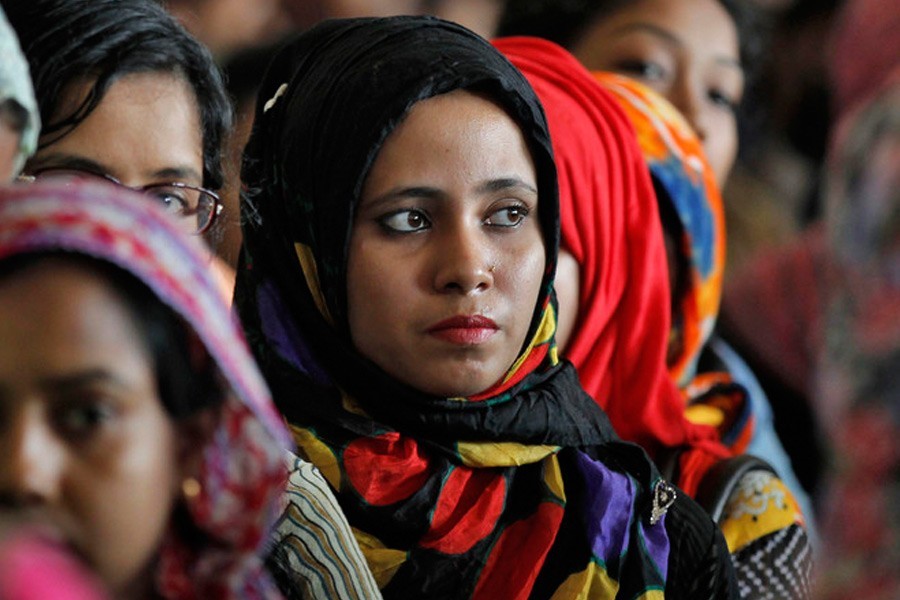At least seven women returned home from Saudi Arabia in the last three months with severe psychological trauma, sources said.
Bangladeshi domestic helps often fall victim to brutalities at the hands of their employers.
Rupali arrived in Dhaka last Friday. She is undergoing treatment at the National Institute of Mental Health.
Talking to the FE, Majeda Khatun, mother of Rupali, said her daughter now behaves abnormally.
The victim often grows angry with people and even assaults them, as she described her daughter's trauma.
"Rupali even beats me up and doesn't care anything," said Mrs Majeda.
Rupali, who is in her twenties, wanted to be self-reliant as her husband is a drug addict. So, she went to Saudi Arabia five months back.
"But we discouraged her to go to the Arab country," the mother told this correspondent.
"I talked to her before last Shab-e-Barat. Later, I couldn't communicate with her," she mentioned.
"I don't know what happened to my daughter. Why is she is so mentally disturbed?" Mrs Majeda queried.
She sought the government's support to continue her daughter's treatment.
Momtaj (32) hailed from Manikganj district went to Saudi Arabia nine months ago.
She had a dream of a secure future of her only son with a better education, said her brother Zahidul Hasan.
"Momtaj can't respond normally now. She looks upset all the time and doesn't communicate with us," he bewailed.
She got distressed for the mental torture she had received from her employer, Mr Hasan went on saying.
Momtaj was also treated at the mental health institute a month ago.
In the last three months, about 400 women returned home with different types of tortures.
The maximum returnees came with shock and awe, said Shariful Islam, head of BRAC Migration Programme.
"But some of them are with an extreme level of trauma," he told the FE.
They received seven women with severe psychological trauma during the period, Mr Islam said.
Referring to the specialist doctors, he said, "Some of the women might have lost mental balance for being ill-treated abroad."
About Rupali's medicare, Mr Islam said BRAC will follow up her treatment.
But the families and society have to cooperate with the women properly to help them overcome their shock.
The government must come up with emergency support to the victims, Mr Islam said.
"But unfortunately, we don't see any such assistance from the government's side."
"We remain ready to enjoy the remittances sent by the women, but we don't stand ready to accept them when they return home abused," he lamented the fact.
Earlier, Indonesia and the Philippines protested against torture of their domestic helps in the KSA.
The countries also reduced sending women to the Gulf country.
The KSA then decided to hire workers from Bangladesh.
More than 0.2 million women went to the oil-rich country since the signing of a recruitment deal in 2015.
Some 5,000 women returned home from the KSA in the last three years on allegations of workplace exploitations like denial of wages, sexual and physical abuses.
More than 200 women are also waiting at safe homes and immigration camps in Saudi Arabia.
Human rights lawyer Salma Ali said Bangladesh should only send skilled domestic helps to the kingdom.
It is also needed to ensure their access to justice at the destination country, she mentioned.
Mrs Salma said Bangladesh embassy and labour officials should be efficient enough to help the women workers get justice there.
More than 0.7 million women have gone abroad with jobs since 1991.


